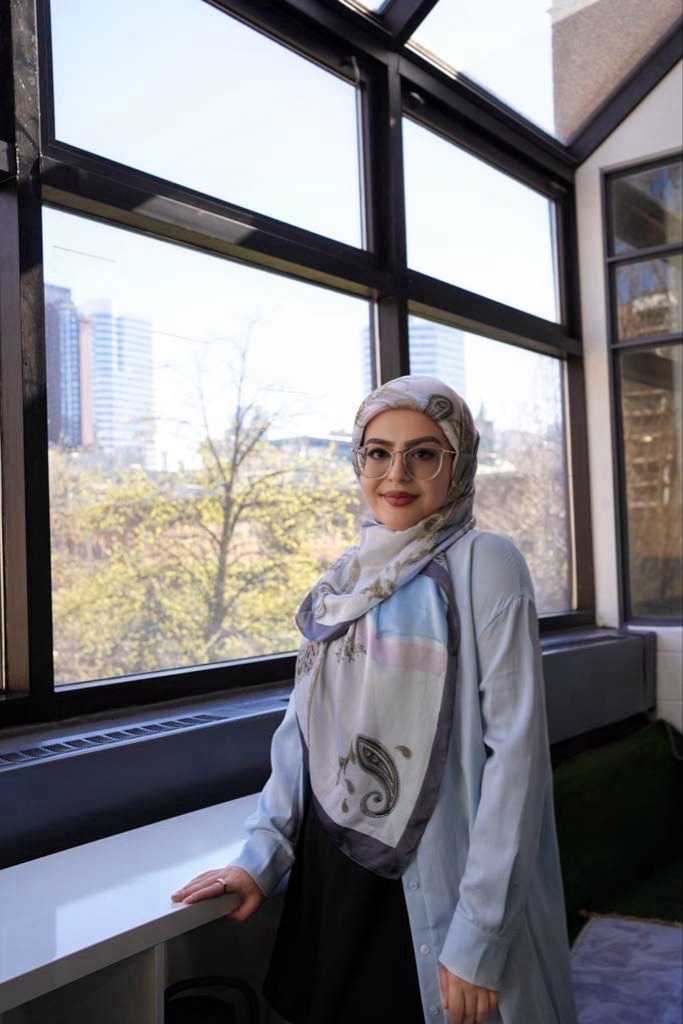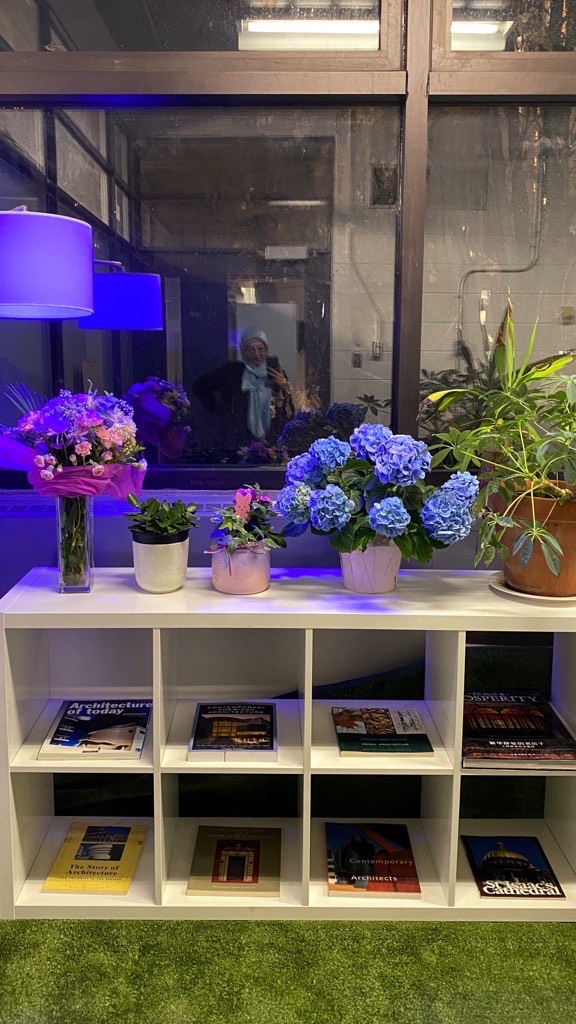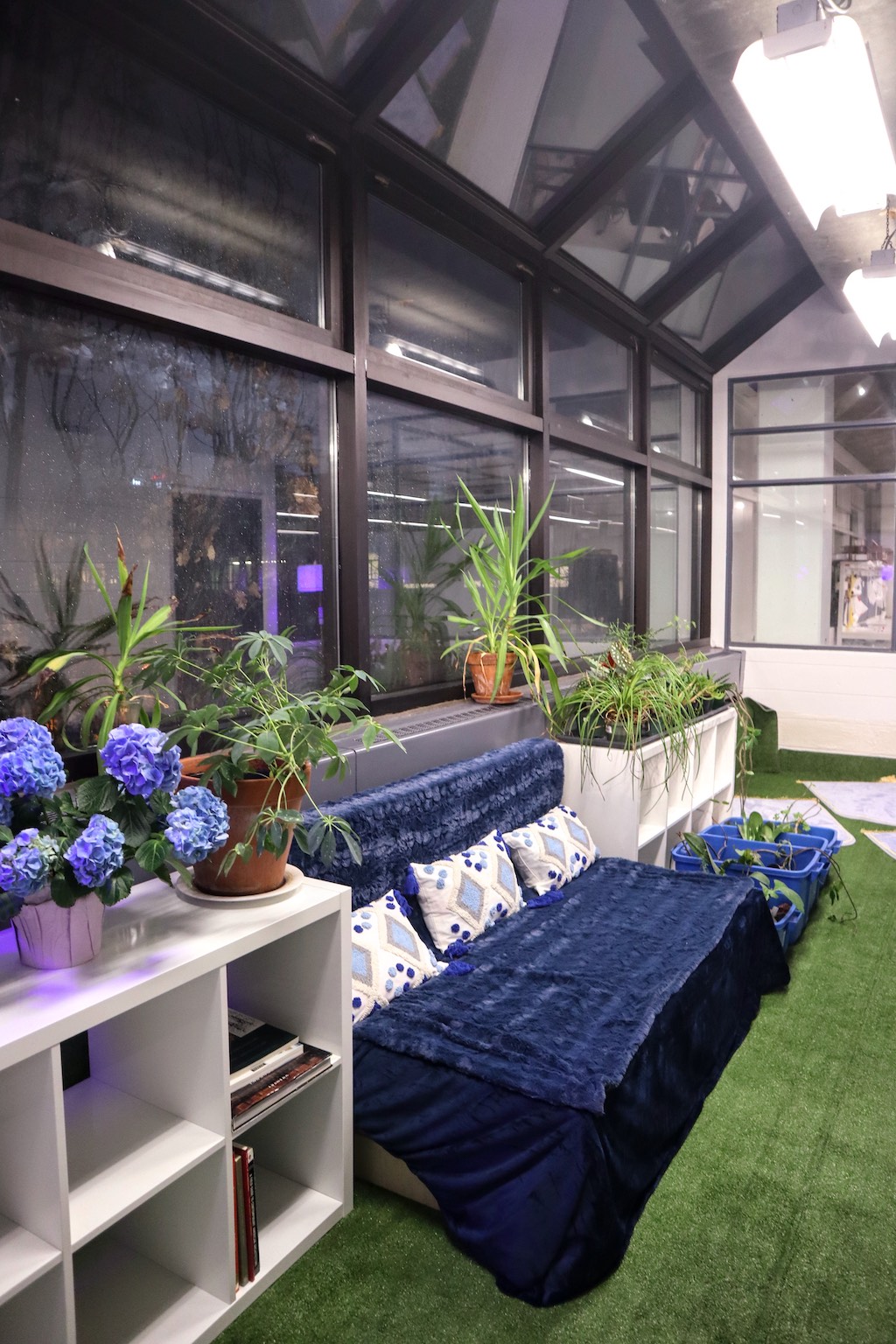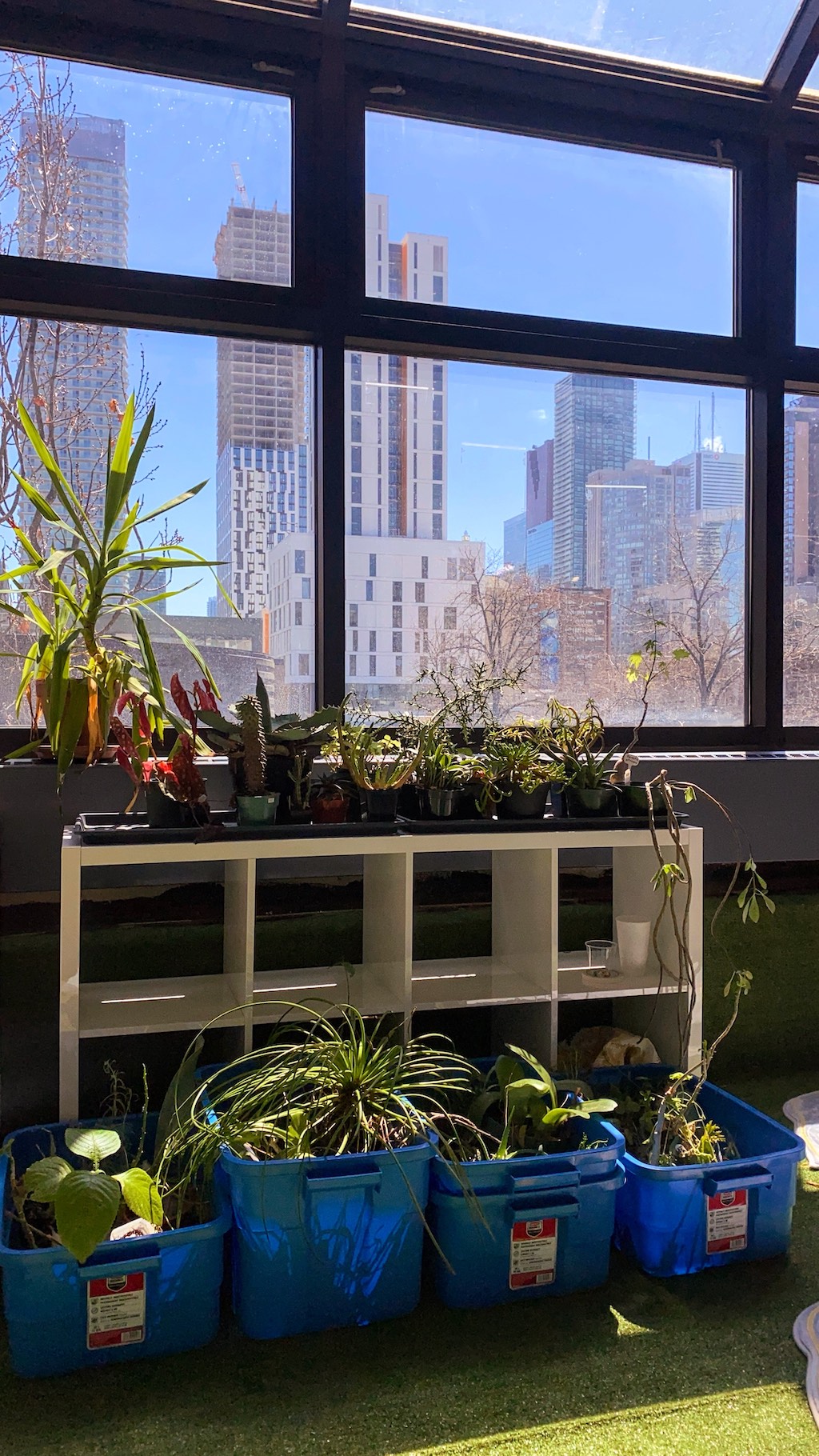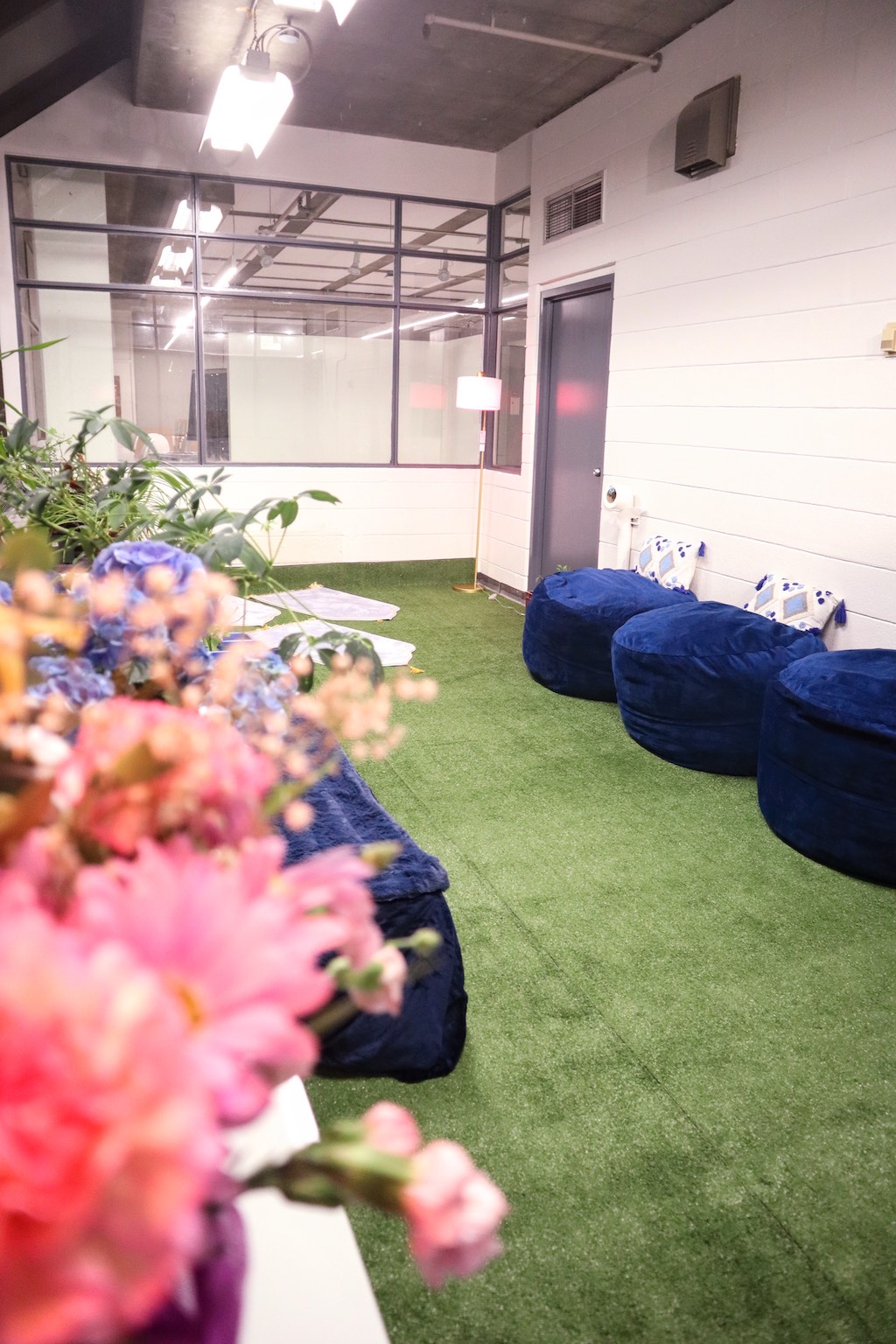Narges Motevasseli: Transforming Space for Wellness and Inclusion at the Department of Architectural Science
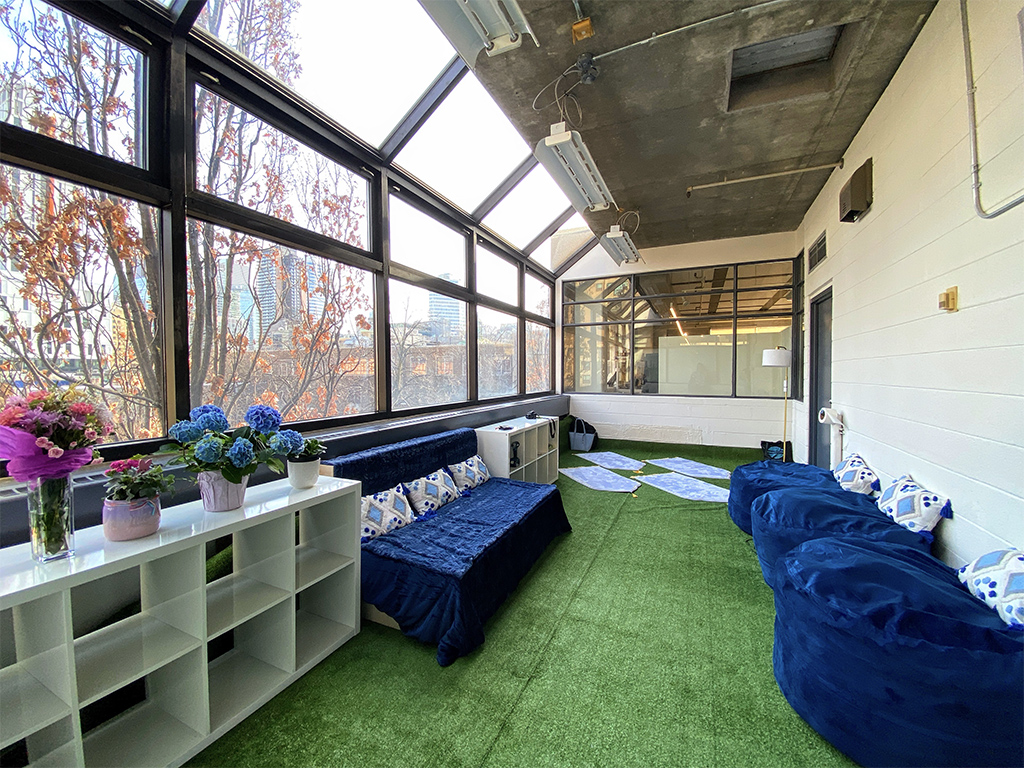
Narges Motevasseli, a fourth-year undergraduate student at the Department of Architectural Science, has made significant strides in spearheading the creation of a new prayer and wellness room on TMU campus. This initiative not only provides a quiet, dedicated space for students of various faiths to pray and meditate, but it also serves as a sanctuary for anyone needing a peaceful environment to relax and recharge!
Ever since her first year, Narges observed a lack of a dedicated prayer space despite the architecture building being open 24/7. The only other prayer room was in the RSU, which was often inaccessible after 4 pm and could be difficult to reach safely late at night. This challenge prompted Narges to consider the need for a wellness space in the architecture building that would cater to the diverse needs of the student body, especially those with religious obligations and devotion to mental health. .
Narges' journey toward realizing this vision began with her coursework in inclusive design with Assistant Professor Julia Jamrozik, where she identified the importance of creating multi-faith spaces and wellness rooms in public buildings. Over the summer, she was hired as a research assistant and took the opportunity to propose and develop the prayer and wellness room; What was once a vacant greenhouse for years has now been converted into an oasis within the architecture building. Initially, the project faced several hurdles, including the need to address potentially toxic paint, installing heating and lighting, and fixing leaky windows. Shelves donated from the school were repurposed for plants and books, while recycled wooden bases were used to create a comfortable seating area. Waterproof turf added a touch of tranquility and practicality.
Narges' efforts have not only created a physical space for wellness and reflection but have also fostered a sense of community and responsibility among students. The room was taken care of up to now by Narges but in order for the space to thrive and as it's a student run space, the student body should take initiative to water the plants and ensure the space remains clean and intact. “Looking ahead, I hope my work will inspire more initiatives centered around wellness and inclusion. My focus extends beyond physical sustainability to encompass mental health and wellness–designing for marginalized and diverse populations leads to better, more accessible spaces for all. I’m happy that the future generations of students now have a space for prayer and reflection in a building where they spend most of their time in.”
The impact of Narges' initiative was evident when students began using the space the day after it opened, expressing gratitude for her efforts. The Prayer/Wellness room opened 3 weeks prior to finals, a perfect time when students are pulling long nights and the day before Eid Fitr (Celebration at the end of Ramadan). By providing visibility and support for Muslim students and creating an inclusive space for all faiths, Narges is contributing to a more equitable and compassionate academic environment. The prayer and wellness room project serves as a testament to the power of student-led initiatives and the potential for positive change when students take action to address the diverse needs of their community.
Narges' initiative would not have been possible without the invaluable support of several key individuals and groups. Special thanks are extended to Lisa Landrum, the Department Chair, for her unwavering support. The logistical coordination and assistance provided by staff members Bridgette Dalima and Leo Roytman were crucial in overcoming the numerous challenges faced during the project's implementation. The support and feedback from the EDI committee played a significant role in shaping the vision of the wellness room. Additionally, the involvement of the ACU has been instrumental, and the space will be under the purview of the ACU moving forward. This collective effort demonstrates the power of community and collaboration in creating inclusive and supportive environments for all students.
